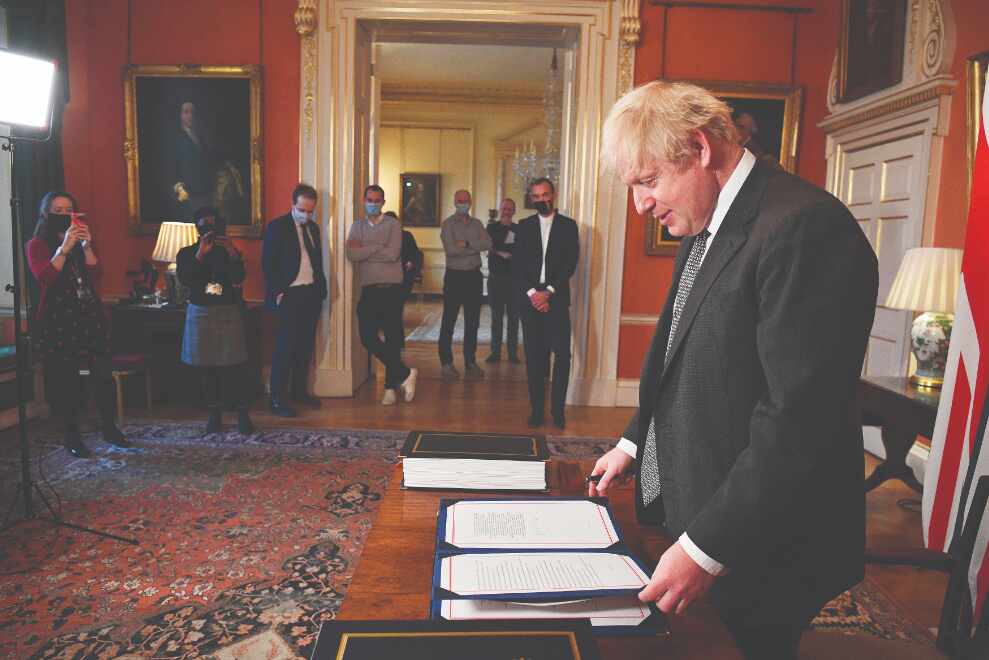Brexit's choice for EU, UK: Firm friends or nearby rivals

Brussels: The New Year could finally bring a fresh start and a commitment to let bygones be bygones for Britain and the European Union.
But dont bet on it.
The UK has chosen to leave the EU, setting a course away from the continental mainland. But the two sides histories have been too intertwined for 1,000 years for the split to be simple.
Eleven months after Britains formal departure from the EU, Brexit becomes a fact of daily life on Friday, once a transition period ends and the U.K. fully leaves the worlds most powerful trading bloc.
But customs controls, red tape and the residue of bile caused by years of acrimonious divorce talks may provide the sting not the thrill of the new. And despite the 4 -year extraction process, loose ends will surface for months, even years, to come.
For one reason or another, the U.K. is likely to be in non-stop negotiations with the EU for decade after decade, said Charles Grant of the Center for European Reform think-tank.
Brexit marks the end of an awkward relationship. Britain joined the then-European Economic Community in 1973, but never fully embraced the bloc's project of ever-closer integration. The EU was born out of the ashes of World War II and its delusional, destructive nationalism.
As a nation victorious in two world wars and with lingering memories of its imperial past, Britain viewed the pan-European project much differently than, for example, Germany.
Still, actually leaving the bloc was long a fringe idea before it gradually gained strength within Britain's Conservative Party. In a 2016 referendum, voters striking a blow against the status quo opted by a narrow 52% to 48% to leave.
That political shock is still reverberating. It took 3 years for the split to happen last Jan. 31 and another 11 months of fractious wrangling to agree on a trade deal.
Sealed on Christmas Eve, it satisfies major demands on both sides. It protects the EU market by making tariff-free trade conditional on Britain continuing to meet high social, workplace and environmental standards. It allows Britain to claim it regained sovereignty because it is no longer part of EU structures like the European Court of Justice.
UK Prime Minister Boris Johnson called it a new starting point for our relationship between sovereign equals.
The EU begs to differ. It considers itself the superior partner, a bloc of 450 million consumers, carried by economic juggernauts like Germany and France, while Britain is a nation of 67 million. It believes the brunt of Brexit's pain will be borne by the UK.
We are one of the giants, said European Commission President Ursula von der Leyen. From a position of strength you can achieve a lot.
For British Brexiteers, the blow from erecting new trade barriers is compensated by visions of regained freedom and a crucial word
sovereignty.
So far, Johnson has given only glimpses of what he plans to do with that sovereignty: forge trade deals around the world, be more competitive through smarter and better regulation, expand the high-tech sector.
From a member of the EU, Britain will become its economic rival.



